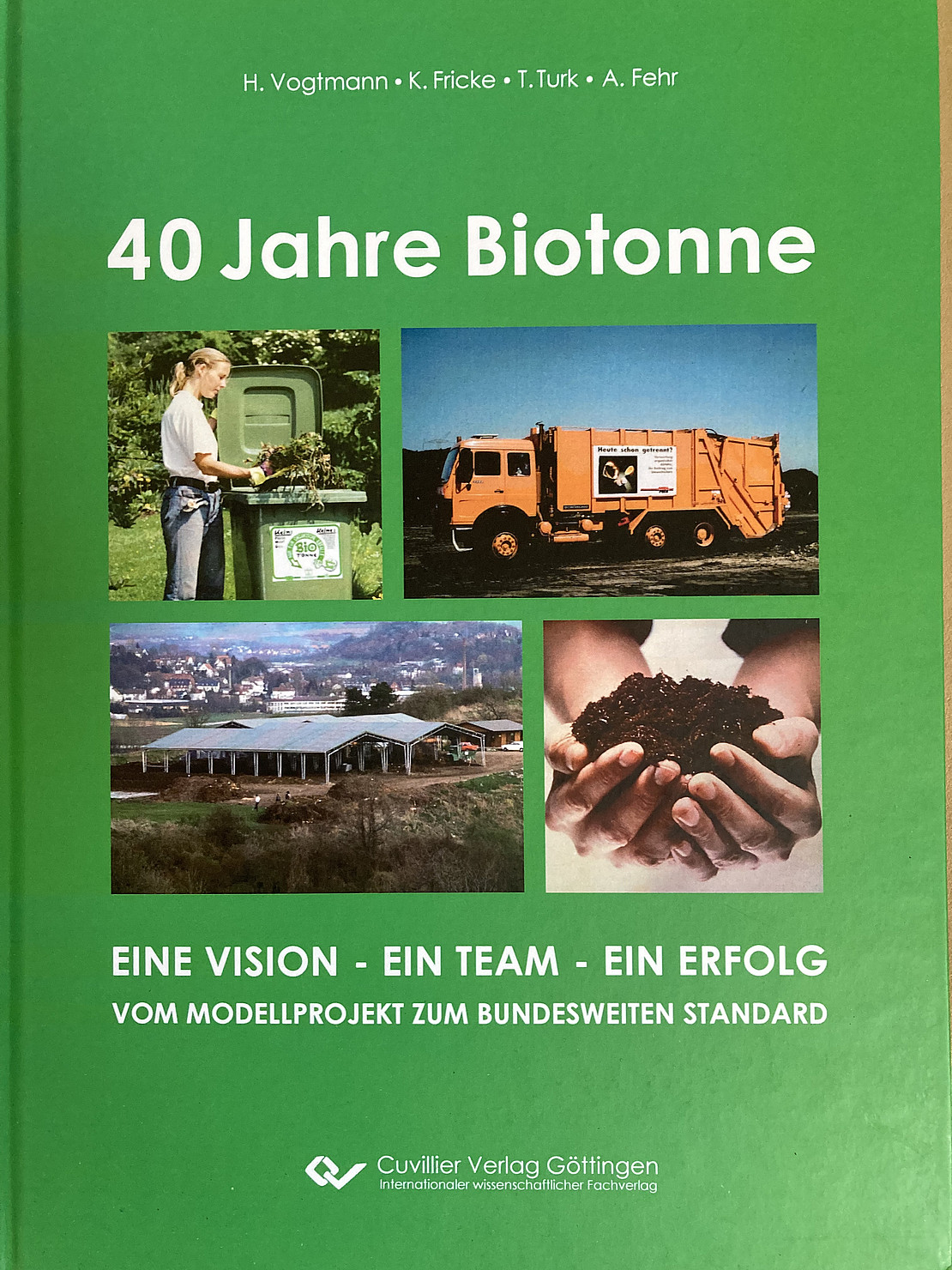This page contains automatically translated content.
40 years of organic waste garbage cans: One vision - one team - one success

The authors Andreas Fehr, Hartmut Vogtmann, Thomas Turk and Klaus Fricke did not set out to write a scientific treatise. Rather, they describe from different perspectives how the idea was born in 1982, how a project was formed and implemented in 1983, and what significance it has achieved to this day. But what has actually become of the protagonists of that time? The authors have also addressed this question and shown the multifaceted developments of the individual characters. The first part of the book therefore deals with the pilot project "Green waste garbage can in Witzenhausen" and the continuing research project "Separate collection and composting of biowaste in Witzenhausen. The second part contains biographies of the project participants and a listing of companies/institutions that have developed from the research project and are partly still active in the industry today.
At the time, the approach and implementation did not always follow clearly defined scientific methods, much could not be fully planned, and yet the unconventional approach of the players led to success. One reason for the successful establishment of the organic waste garbage can was the prevailing framework conditions: The waste management and political situation of the 1980s ultimately proved to be groundbreaking for the separate collection of organic waste.
The great commitment and the different approaches of the individual actors deserve a separate consideration. The book describes from different perspectives, partly in a very personal way and in a rather loose narrative form, key experiences and actions of the protagonists, which in retrospect turned out to be groundbreaking for their personal and professional development.
It was a long way from the idea in 1982 to the pilot project "Green Waste Bin Witzenhausen" until 1985 and the continuing research project of the state of Hesse "Separate Collection and Composting of Biowaste in Witzenhausen" from 1985 to 1989. The practice of utilizing manure and other organic waste in organic farming by means of aerobic conversion (composting) was of great importance for the newly developed concept of biowaste utilization and manifests itself in the fact that the research activities started from the head of the department "Organic Farming" (Prof. Dr. H. Vogtmann) at the University of Kassel (Witzenhausen site). This is therefore explained in detail at various points. This is followed by a retrospective analysis of the course of the project, taking into account current economic theories, and a look at the current status, the future importance of separate collection of biowaste and its composting and fermentation, both nationally and internationally.
Fehr, A.; Vogtmann, H.; Turk, T.; Friecke, K.: 40-years organic waste garbage can: a vision - a team - a success. From model project to nationwide standard. Göttingen 2021. URL: https://hds.hebis.de/ubks/Record/HEB477704174